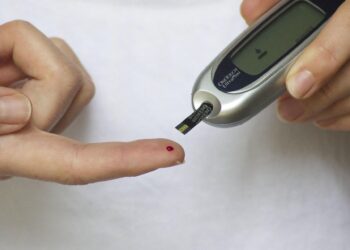As a mother of two girls, I am constantly worried about the environment they are growing up in. In a few years, they will be stepping into their teenage & undergo physical & psychological changes. As a mother, I take this as my responsibility to educate them about sex & personal hygiene.
I would say to all mothers whose kids are young adults that it is essential to educate our children on basic sex knowledge & risks attached to sexual hygiene once they are in that age bracket.
It is not uncommon for youngsters to explore the grey area, but they should be aware that there are sexually transmitted infections that could potentially lead to certain types of cancers. Of course, I am talking about HPV.
What exactly is HPV, and who is at risk?
HPV (Human papillomavirus) is the most commonly transmitted viral infection of the reproductive tract. It infects both women & men. It is sexually transmitted via intimate skin-to-skin contact during vaginal, oral or anal sexual activity with someone who has HPV.
Sexual contact, including oral sex and deep kissing, can be a method of HPV transmission from one person to another. The likelihood of contracting oral HPV is directly associated with number of sexual partners a person has had. 80% of sexually active men and women get infected with HPV at some point in their lifetime.
Most cervical cancer cases (more than 95%) is due to the human papillomavirus (HPV).
Every 5 mins, nearly one individual loses life due to HPV-related cancers in India.
Since HPV is one of the most common viruses affecting men & women both and is sexually transmitted, it is essential to understand the diagnosis, and precautions to avoid it.
How to identify HPV?
HPV may have no symptoms at all. However, in case of a high-risk HPV type (cancer-causing), some women experience growth in the vulva, vagina, and cervix due to HPV. In men, there are cases of genital warts on the scrotum or anal area. However, the infection is more severe in the case of women as it is one of the leading causes of cervical cancer and also responsible for vaginal, vulvar and anal cancers. Low-risk HPV can cause genital warts.
How can one prevent HPV infection?
There are a few things you can do to stay protected.
- Safe sex practices like using condoms during intercourse and dental dams for oral sex can significantly decrease the incidence of infection.
- Regular screening for HPV through tests like PAP smears for women can help identify the infection early.
- Another way to protect against the HPV virus is to get vaccinated.
- You can get more information about the HPV vaccination from your doctor.
Prevention is better than trying to find a cure!
As a mother to 2 girls, I look forward to getting them vaccinated as soon they reach the required age bracket. However, I always feel prevention is better and especially when it comes to HPV, we should not take risks with children’s health.
Read more about HPV infection and prevention at letsfighthpv.com and talk to an expert on the website there.
Issued in Public Interest with MSD India.
This information is for awareness only. Please consult your doctor.











